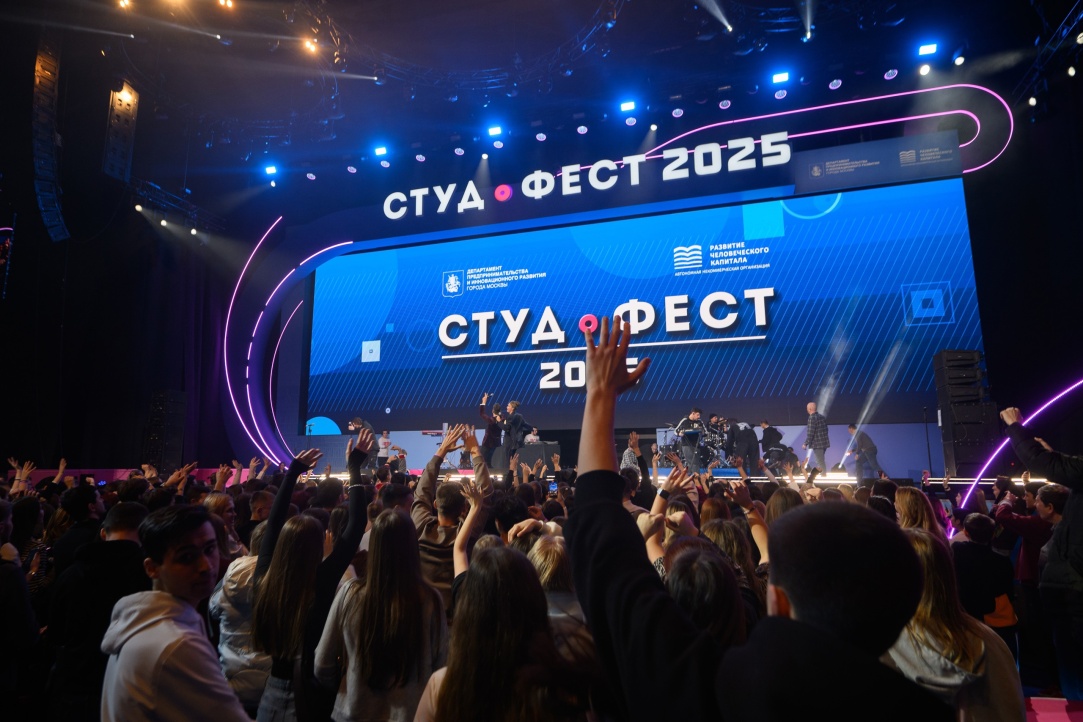HSE Project Ranks in Top 10 at StudFest Student Entrepreneurship Festival

The ViSaver project—a service for instant in-video search, generating time codes, summaries, and test questions based on video content—made it into the top ten of the ‘I Create Business’ competition track at this year's StudFest International Student Entrepreneurship Festival. Anastasia Semenova, founder of ViSaver and graduate of HSE University’s St Petersburg School of Economics and Management, spoke to the HSE News Service about the project.
ViSaver is primarily intended for educational institutions and companies that utilise video training. It helps users save time and resources when working with content, enhancing the learning experience.

Anastasia Semenova
‘The rapidly growing online education market faces challenges with navigation and information search within video content,’ said Anastasia Semenova, the project's founder, alumna of HSE University’s St Petersburg School of Economics and Management, and winner of the university’s early-career scientists' competition. She is currently working on her dissertation at HSE University-St Petersburg.
‘Modern educational platforms rarely allow users to interact with video materials as they do with texts. Manually creating summaries, time codes, and tests for videos also results in significant time and financial costs. According to our surveys, this takes up to 30% of the working time of educational methodologists,’ Anastasia explained.
Additionally, video formats do not allow quick access to specific moments in a lecture or lesson, which reduces material retention and motivation to revisit previously covered content. Ultimately, this increases the risk of dropping out before course completion. Studies show that only 20% of students complete online school courses. Meanwhile, many educational platforms use course completion rates as a key metric, as their revenue often depends on this—especially for long-term courses where payments may be split into instalments.
Respondents in online education surveys ranked constant access to educational course materials as the second most important factor when choosing an online course, with the ease of use of the learning platform being among the top three considerations.
In the corporate sector, automated video content navigation can reduce search time and boost employee productivity. According to McKinsey reports, employees spend an average of 1.8 hours per day searching for information, which is equivalent to 20% of their workday. The ViSaver service helps minimise these time costs.

ViSaver was developed in Russia, with all components, including software code and services, created by Russian specialists.
‘The novelty of the project lies in combining machine learning, video processing, computer vision, and natural language processing (NLP) technologies to create a comprehensive solution,’ said Anastasia Semenova. The AI-powered solution automates video content analysis. The project uses machine learning algorithms for automatic speech recognition, including specialised terminology adjustments through custom glossaries. Language models improve the accuracy of recognition and segment videos into meaningful blocks, providing high-quality transcripts for creating summaries and time codes. Text recognition technologies in images (for example, slides) generate textual descriptions of visual materials. This approach allows for the creation of summaries containing both textual and visual information, enhancing the clarity and depth of learning. Text processing models and transformers analyse and extract topics from transcribed videos, enabling semantic segmentation and the creation of structured summaries and time codes. Text summarisation models identify key points and generate automatic short overviews. Vector, semantic, and multimodal search and ranking technologies enable highly accurate keyword and phrase searches within videos.
The system also supports automatic translation of time codes and summaries into other languages, as well as multilingual video content search.
ViSaver already holds three registered intellectual property rights, providing legal protection for its innovative solution. Initial clients in the EdTech sector have assessed the service's benefits, and pilot projects have been launched at leading Russian universities, including Moscow City University, Synergy University, the State University of Aerospace Instrumentation, Peter the Great St Petersburg Polytechnic University, and ITMO University.
The project has twice received grants from the Foundation for Assistance to Small Innovative Enterprises, was ranked among the top 100 most-promising Russian companies of 2024 by RB CHOICE, and is included in the top 150 best university start-ups in Russia.